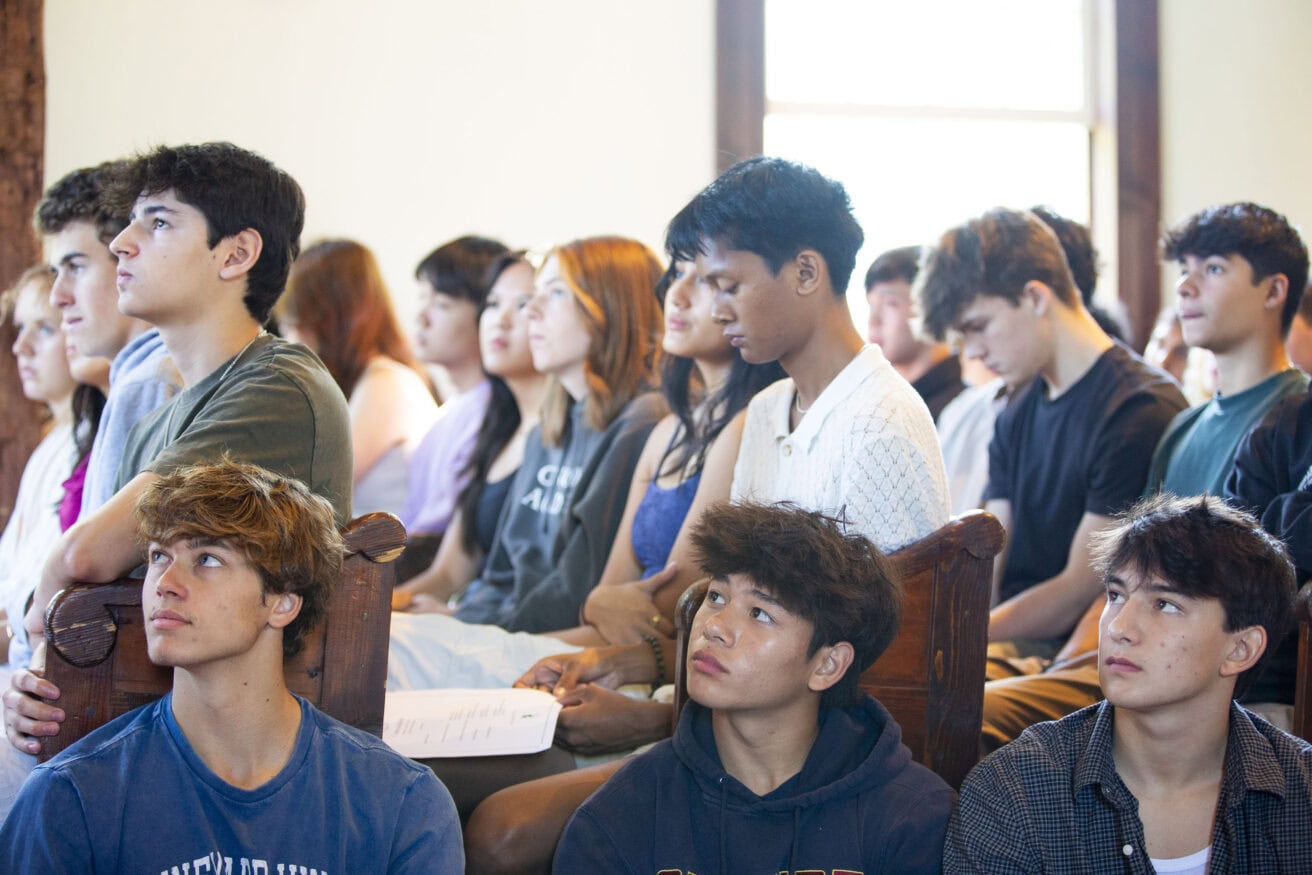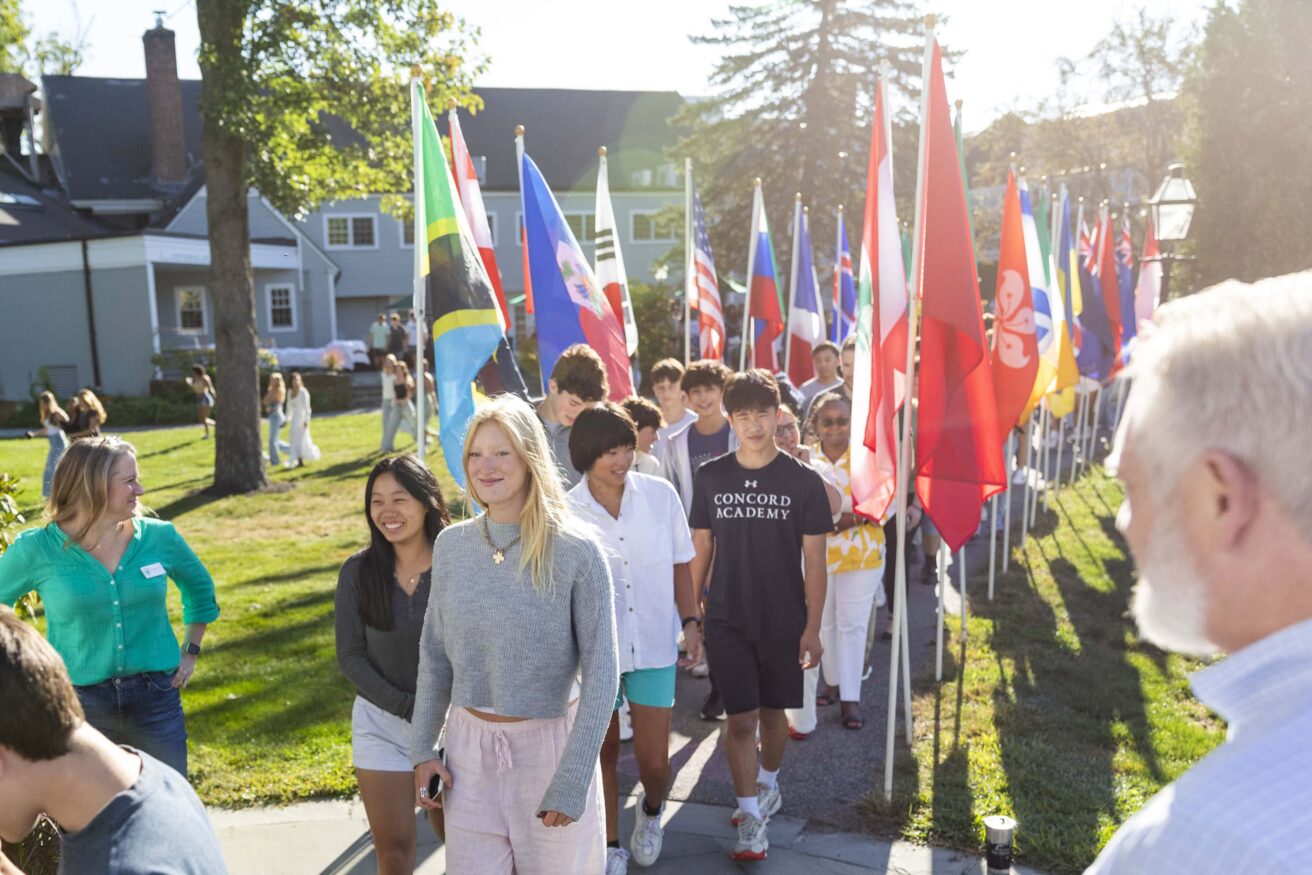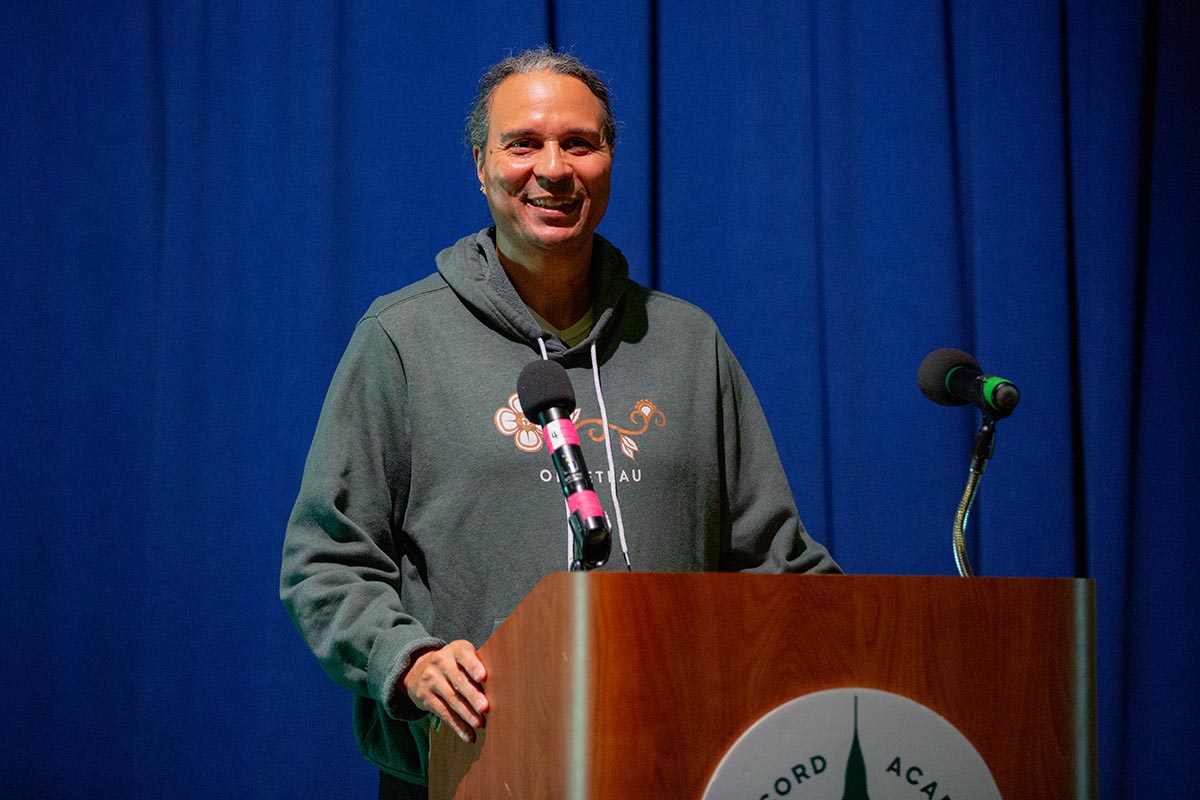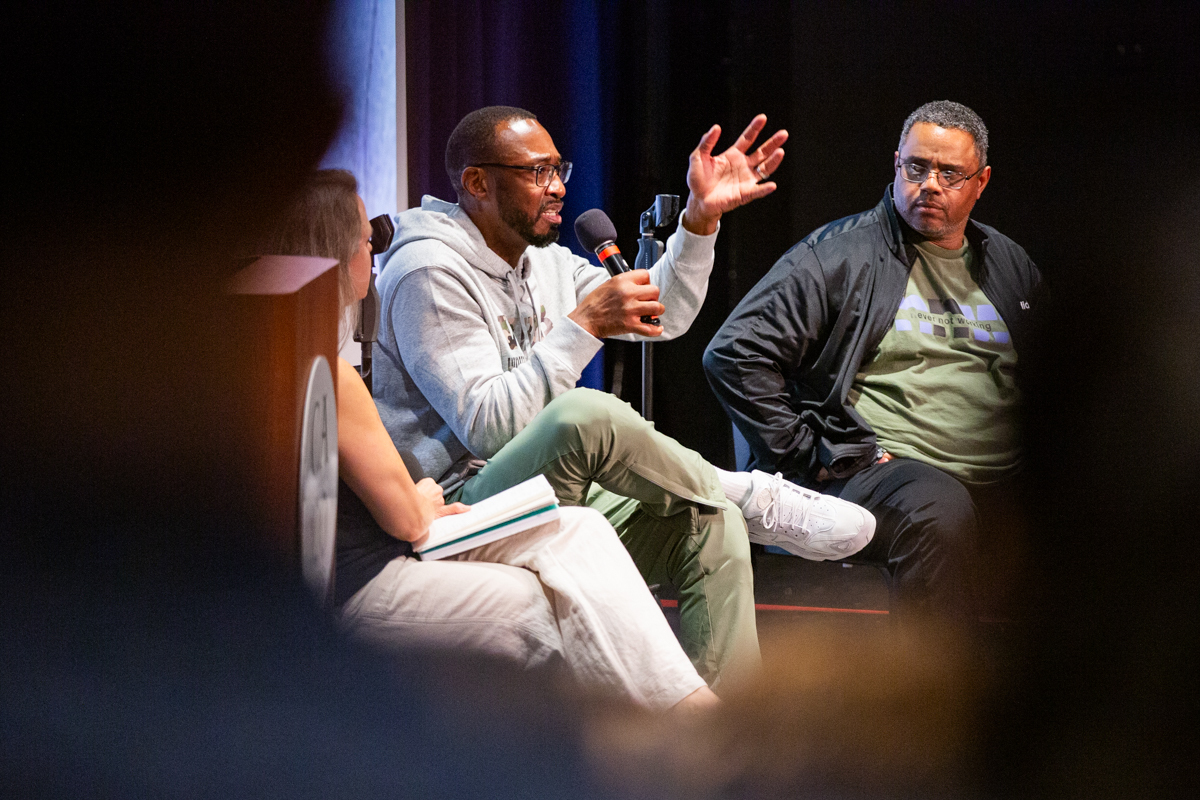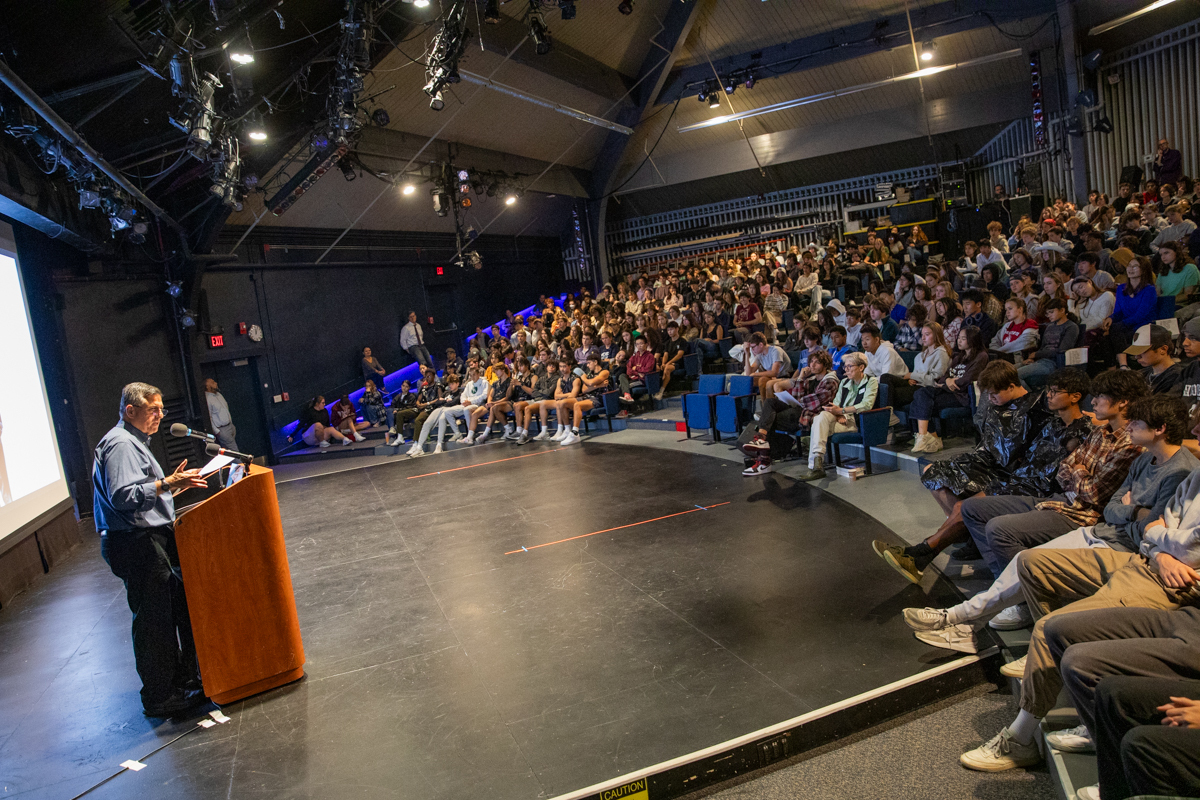Convocation Opens CA’s 102nd School Year with a Focus on Care in Community
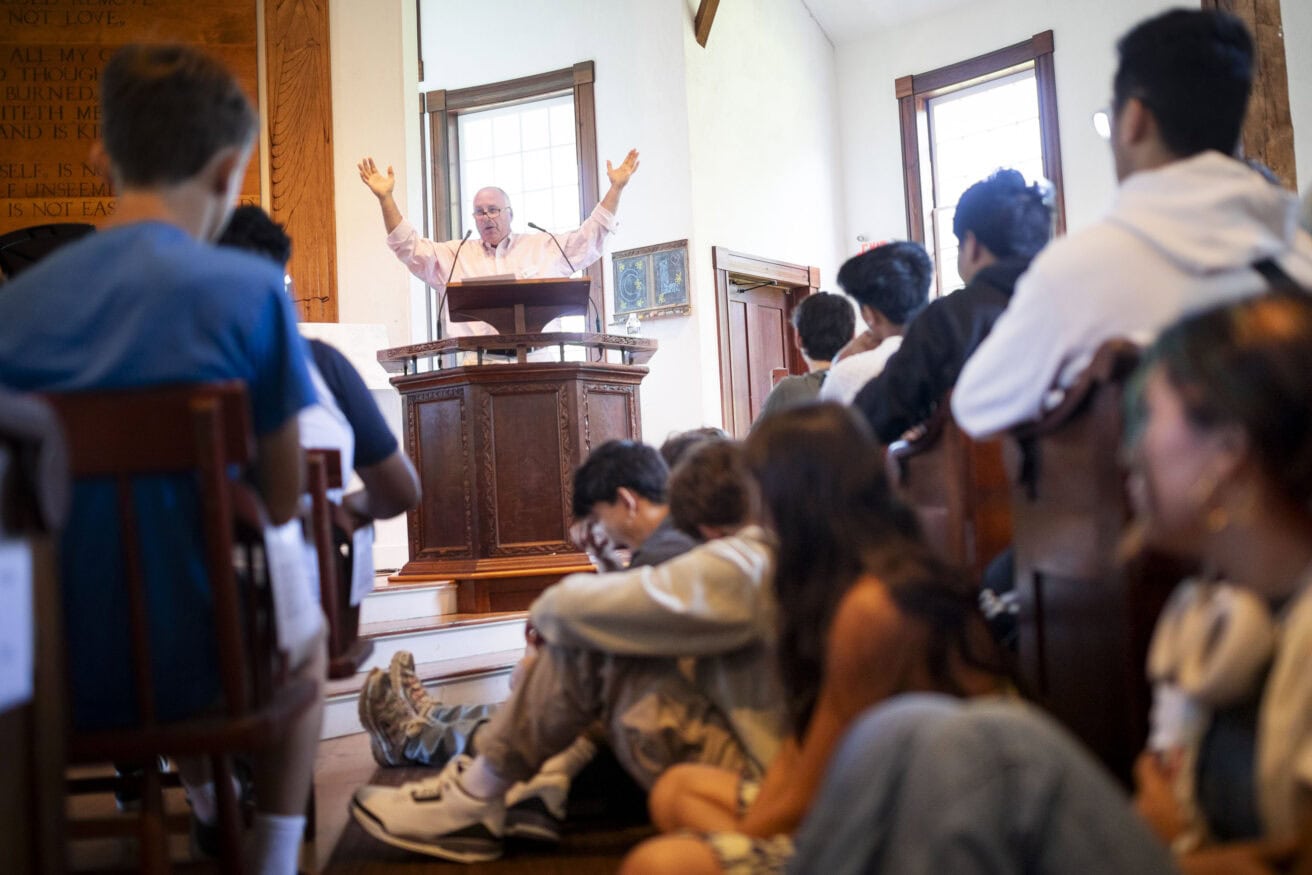
On the crisp, blue-skied morning of September 3, the 2024–25 academic year began with Convocation in the Elizabeth B. Hall Chapel. A distant buzz and hum of machinery drifted from the Centennial Arts Center (C.A.C.) construction site nearby, adding a subtle percussive soundtrack to remarks by this year’s featured speaker, Don Kingman, director of campus planning, design, and construction.
“I’m the guy responsible for all the noise and commotion happening next door,” Kingman quipped, introducing himself. As the steward of CA’s campus for more than 30 years, he has transmuted visions for improving learning and living spaces into concrete, steel, and clapboard. The capstone to the many campus projects Kingman has captained is the 38,000-square-foot C.A.C., whose newly installed east-facing windows reflected the morning sun.
Over three decades at CA, Kingman has supervised renovations to student houses, faculty residences, the Performing Arts Center, the Student-Faculty Center, and the Student Health and Athletic Center, as well as the construction of CA Lab, the Moriarty Athletic Campus, and, now, the C.A.C. Speaking at Convocation, he shared his love for the “energy, excitement, and warmth” each new school year brings, and of all-school gatherings. He recalled what former music director Ross Adams would say to the audience as students warmed up at Music Café: “We tune because we care.” Kingman likened the work on building projects to “tuning up” for the campus community. “I’m here because so many people around me care too,” he said.
A campus resident since 1994 whose two children grew up at CA, Kingman has held many other roles, including administrator on duty, chaperone, advisor, and study hall proctor. He has also pitched in to park cars, plow snow, and set up chairs for Commencement and tackled less foreseeable tasks—chasing a raccoon from the second floor of Wheeler House with a hockey stick, for example, and keeping watch from the Chapel steps when flood waters rose from the Sudbury River.
Calling attention to the “hidden heroes” who do largely unseen work, Kingman offered two metaphors for the individual in relation to the CA community: stone walls and tugboats.
Kingman is passionate about stonework. He described stone walls as “timeless sentinels pieced together one by one until disorganized rocks and stones meld into a cohesive structure.” These walls serve multiple purposes, he explained—holding back the earth, defining space, creating focal points in the landscape, and providing gathering spots that “anchor us in our past,” where we can sit, relax, talk, dream, and contemplate what comes next. At CA, he suggested, we arrive as individuals, all differently shaped; we are pieced together and become interdependent.
As for tugboats, as a toddler, Tugboat was Kingman’s nickname. These “unglamorous” workhouses of the shipping trade, he said, play a vital role, carrying out what needs to be done for the greater good at any time of day or night, rain or shine. Without the assistance of tugboats, bigger ships can’t get out of the harbor, and Kingman acknowledged the many adults at CA who do similarly important behind-the-scenes work, encouraging students to to get to know the “tugboats” at CA.
“Community doesn’t just happen—it’s intentional,” Kingman said. He advised students to consider what individual contributions of theirs can leave this community “in better shape than you found it.”
Head of School Henry Fairfax also addressed the importance of considering all the “work that is real,” in the words of Marge Piercy—sharing a poem of hers, “To Be of Use,” that had touched him and his colleagues when he was the founding head of school at Revolution School in Philadelphia. Piercy’s way of considering all the “work that is real,” he said, put into perspective the importance of every role—and the importance of trust in one’s teammates— in the endeavor of school-building.
Jennifer Pline P’13 ’15, co-president of CA’s Board of Trustees, welcomed the 107 new students, from 15 countries and 16 U.S. states, and 16 new faculty and staff members who joined the CA community this year. She celebrated the successful Centennial Campaign, which raised more than $50 million for financial aid, endowment, and academic and building priorities, and the development of the C.A.C. and West Campus—a huge project, roughly 40% of CA’s campus. “We’re capping off a remarkable 10 years, during which CA’s campus has remarkably improved and transformed,” she said—a transformation that Kingman “so ably led us through.” She also shared her excitement about CA’s strategic plan, the first in many years, undertaken to set a course for the next five years and build a foundation for the next 100.
Pline also shared a personal anecdote about an interaction with a family member that grew heated. She described walking away to avoid inflaming the exchange and then realizing she hadn’t been truly listening. When this relative later greeted her with a hug as her “dear friend,” Pline said, it reminded her that being part of a family or community is not easy. “Even when you’re in sync with each other, there will be tough times, and you’ll disagree, maybe often,” she said. “None of us are perfect, but if we come in conversation from a place of trust, love, and understanding and extend each other some grace, we can get through it together.”
Student Head of School Malik Traore ’25 also offered community-building advice. A boarding student from New Jersey, he said he learned while working as a camp counselor this summer about the importance of patience and empathy—skills we’ll need to practice this year, especially during this election season. Holding up the diversity of backgrounds and beliefs in the CA community, he urged, “We must not lash out at those who are different; rather, we should encourage open dialogue and conversation to get to the root of our issues.”
He thanked staff and faculty for their dedication to supporting students and acknowledged some of CA’s “tugboats,” including the operations and dining hall crews.
Malik urged the entire community not to let opportunities to “have fun on campus, seek change, and have meaningful interactions” go to waste. “Your experience at CA is truly what you make of it,” he said.”
